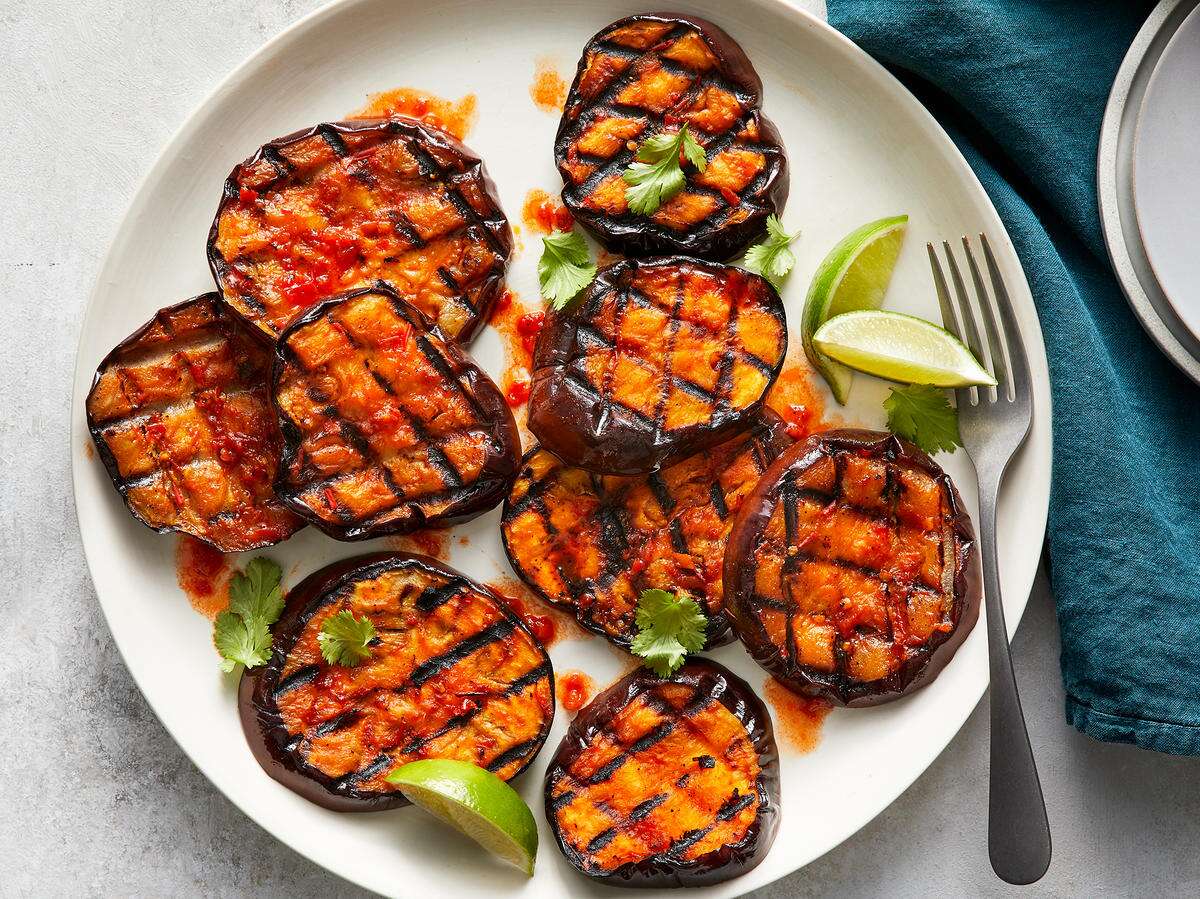Healthy BBQ – How to Keep Your BBQ Healthier

Whether you are planning to cook at a backyard barbecue, or you’re just grilling at home, there are some ways to keep your BBQ healthier than ever. Avoid sugary sauces and charred meat. Try precooking vegetables before grilling. Also, make sure to fill half of your plate with vegetables and fruit. And if you’re grilling your own food, remember to include fresh fruit. You’ll be happy you did!
Avoid sugary sauces
When purchasing barbecue sauce, you may be tempted to add Splenda. But sugary barbecue sauces aren’t the only problem with these sauces. They often contain sugar substitutes such as Stevia, which comes from the stevia plant. Stevia contains no sugar and is suitable for diabetics. You can even make your own barbecue sauce at home! Here are some tips for choosing sugar-free barbecue sauce.
Sweet Baby Ray’s barbecue sauce has 14 grams of sugar. It also contains modified corn starch and high fructose corn syrup. These types of barbecue sauces are void of any real nutrition and can contribute to weight gain. Added sugars may also contribute to poor gut health. So if you’re planning to cook with this type of barbecue sauce, be sure to check the labels. It can be difficult to know how much is too much.
A good way to combat too much sugar is to add vinegar. Both dry and prepared mustard contain vinegar and salt. They give off a different flavor than sugar. Adding a little extra vinegar or soy sauce will counteract the sugar. Soy sauce, vinegar, or lemon juice can be used to enhance the flavor and reduce the sugar content. You can even make your own barbecue sauce. If you do not want to make your own, just use store-bought ketchup.
Avoid charred meat
Charred or blackened meats are particularly bad because they contain the highest amount of HCAs and PAHs. Research shows that meats with high charring temperatures are more likely to cause cancer than those that are not charred or blackened. High temperatures also produce chemicals called heterocyclic amines, which damage DNA and increase the risk of pancreatic and stomach cancer. Avoid charred meat by grilling fish instead. Fish contains less fat than meat, which means it cooks more quickly and does not cause flare-ups.
You can reduce the risk of cancer by marinating meat prior to grilling. This technique tenderizes meat while reducing charring. Choose a marinade that contains no sugar, which will help prevent charring and prevent formation of HAAs, which have been linked to cancer. Charring can also increase the risk of producing polycyclic aromatic hydrocarbons, which are also cancer-causing chemicals. Therefore, it is crucial to avoid charring of meat when grilling.
Charred meats contain potentially cancer-causing substances known as PAHs. Polycyclic aromatic hydrocarbons are released from the burning of fats. Grilling meat over open fire releases these chemicals into the air, and they attach themselves to the meat. Studies have found a link between PAHs and cancer, but others have not. Still, regular consumption of grilled meat may make a big difference in your health.
Precook meat in the microwave before grilling
The National Cancer Institute suggests precooking meat in the microwave before grilling to minimize exposure to chemicals and HCAs. The National Cancer Institute also recommends that fatty meat is placed on a piece of foil with small holes, which will prevent rising smoke from penetrating the meat. Use a spatula rather than a fork when flipping the meat, as a fork is more likely to spill juices.
To minimize the amount of dripping juices onto the heat surface, precooking meat in the microwave will remove some of the juices. It may also prevent formation of water-soluble precursors of FCAs. To further prevent FCAs, make sure to clean your grill frequently and keep it clean. In addition, precooking the meat will help you avoid water-soluble HCAs.
Chicken is an excellent candidate for micro-grilling since its skin doesn’t get soggy. The chicken should be cooked on low to medium heat and should reach an internal temperature of 165 degrees Fahrenheit. The amount of time required to cook chicken will depend on the type of cut and how much you’re cooking. For example, a whole cut chicken should be microwaved for 10 to 12 minutes before grilling, while a small incision near the bone in the largest piece should release clear juices.
Precook vegetables on the grill
One way to make a nutritious barbecue a lot easier is to precook vegetables on the grill. You can do this in several ways. The first is to lightly coat a 24-inch piece of aluminum foil with nonstick cooking spray. Next, arrange thinly sliced vegetables in a single layer, leaving a two-inch border on all sides. Then, fold the foil over the vegetables and press it together tightly. The packets can then be placed on the grill. When done cooking, carefully open the foil packets.
Some vegetables can be grilled without being precooked. These are best served without oil, as the latter will dry out and lose their flavor. Squash, zucchini, and eggplant require slicing. Asparagus and potatoes, on the other hand, can be parboiled for about 10 minutes before being grilled. You can also precook them on the grill by spraying them with oil. Oil will prevent them from sticking to the grill and also help seasoning adhere better. You can also apply salad dressings or marinades to the vegetables before grilling them.
Vegetables are an excellent addition to a barbecue. The grilling process adds a lot of flavor to the foods, and most vegetables don’t need much seasoning. A pinch of salt or a drizzle of olive oil will bring out their natural flavors. For a more dazzling effect, try a simple dressing, such as a herbaceous chimichurri or a sweet-and-spicy barbecue sauce.
Precook fish on the grill before grilling
Before you start cooking your fish, you should prepare it for grilling. Make sure it is frozen-free, rubbed dry, and seasoned. Place fillets in a greased grill basket. Whole fish should be grilled directly on the grill grates, and small seafood should be grilled on skewers. Grill the fish for about three to five minutes on each side, or until opaque.
If you are cooking fish on a charcoal grill, you should first precook it on the grill. To make sure that your fish is cooked through, cook it on medium heat, for about five to ten minutes per inch of thickness. The thickness should be measured from the spine of the fish. Fish fillets should be about an inch thick. If you want to make a whole fish, you can leave the spine of the fish out.
After precooking your fish, you should add seasonings that you prefer to the fillets. You can also add chunks of butter or lemon slices. Once cooked, open the foil packet and let the hot steam escape. Serve your tasty fish on a plate. If you want to serve fish to everyone, you can prepare it ahead of time and then grill it later.
Grill fish tacos instead of burgers
Instead of grilling hamburgers and dogs, you can prepare a barbecue by serving grilled fish tacos to your guests. This healthy alternative to traditional barbecue food is not only a healthier choice, but it is also easier to prepare. There’s no need to fry or batter the fish, or add a creamy sauce or slaw. You can cook these tacos in less than 30 minutes!
To prepare grilled fish tacos, start by marinating the fish a day or two in lime juice, salt, and pepper. Then, coat the fish with a spice blend and grill it until it’s done. Place the fish on a soft tortilla. If you’d like, you can make the slaw a day in advance. Don’t worry if you don’t have fresh pico de gallo; it’s easy to make them a day or two before the barbecue.
If you want to enjoy the taste of fish without the greasy or fatty meat of burgers, try grilled fish tacos. These are quick and easy to make, and the healthy filling is incredibly tasty! You can make them in your own kitchen with ingredients like red cabbage, cilantro, and guacamole. This recipe will keep the food fresh, and you can enjoy them with a delicious side dish like spicy Mexican rice.



